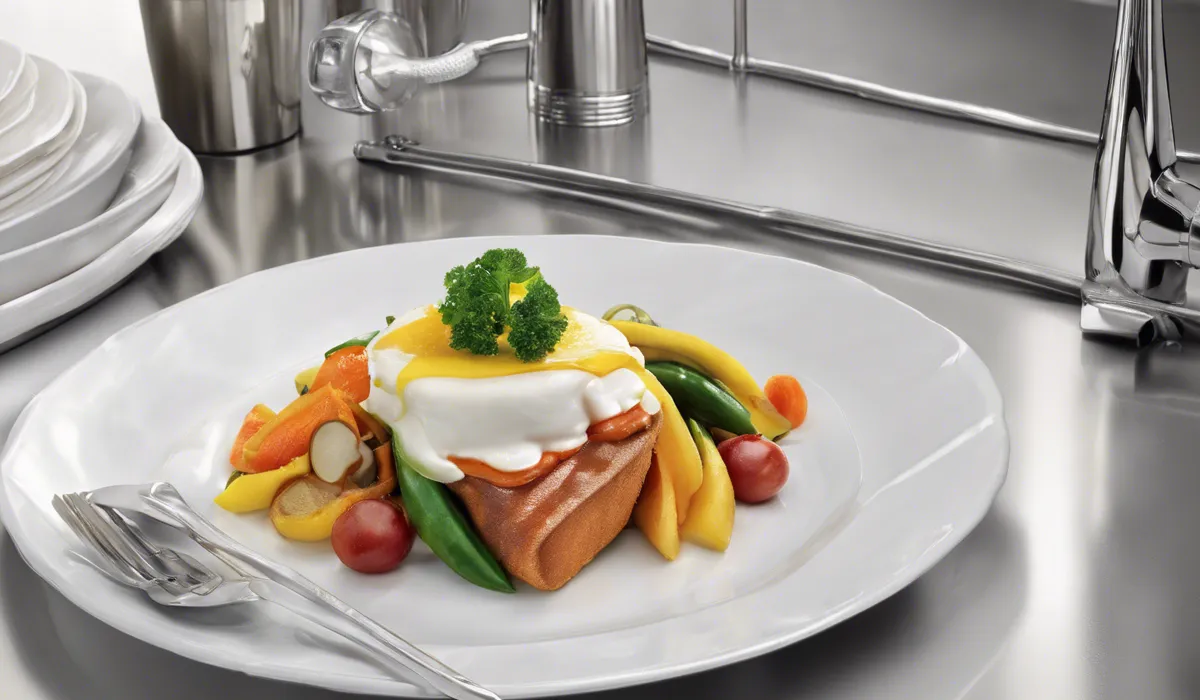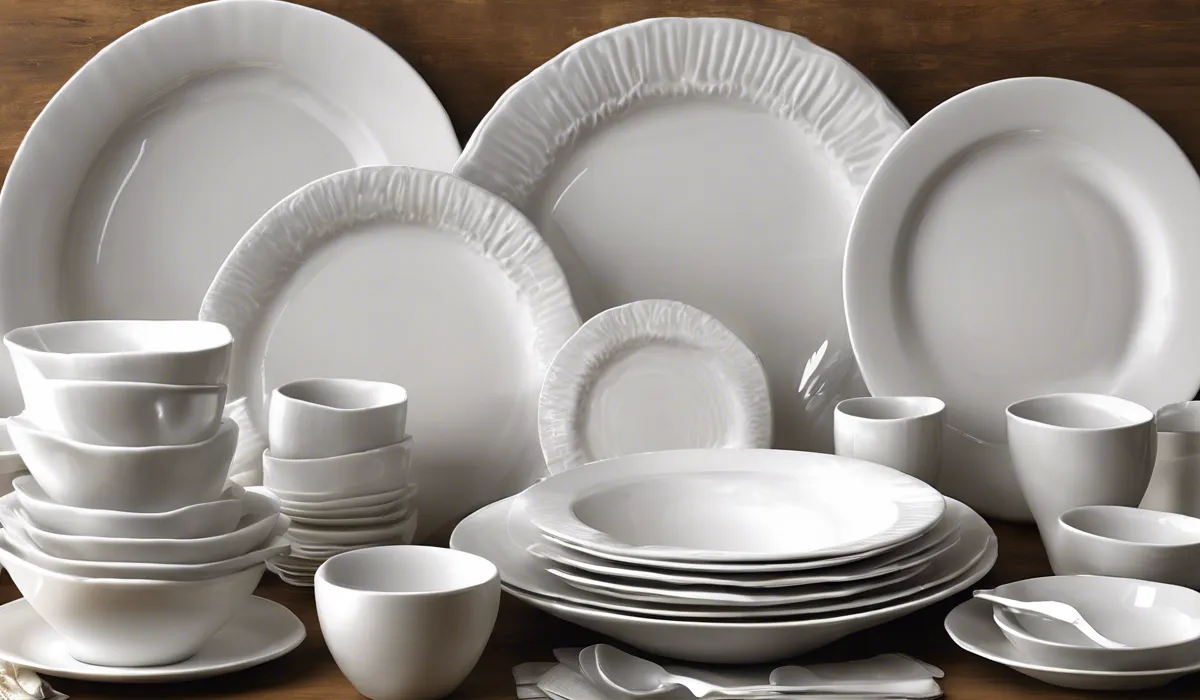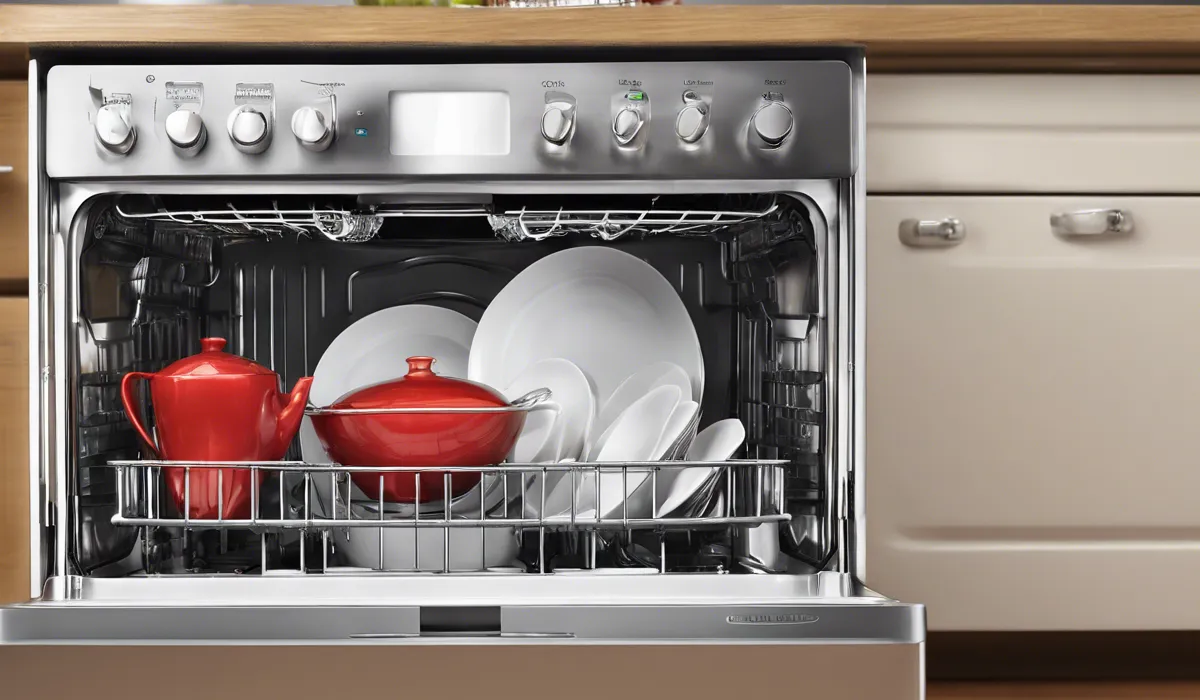What Dishes Are Not Dishwasher Safe? Avoid Ruining Your Wares!
Items not dishwasher safe typically include wooden utensils, cast iron, nonstick pans, and delicate china. Also, avoid washing insulated mugs and sharp knives, as high heat can damage them.
Materials That Should Avoid The Dishwasher

Wooden Wonders: Natural but Not Dishwasher-Friendly
Wooden cutting boards, spoons, and salad bowls add a touch of nature to your kitchen, but exposing them to the dishwasher’s high temperatures and humidity can cause warping, cracking, and loss of natural oils.
Over time, this can lead to deterioration of the wood, which means they won’t last as long as they should. Washing these items by hand with mild soap and drying them immediately is the best way to preserve their beauty and functionality.
Cast Iron: Keep Its Seasoning Sacred
Cast iron pans are treasured for their durability and their ability to retain heat. However, the dishwasher’s environment strips away the seasoning that makes cast iron nonstick and protects it from rust.
To maintain a cast iron skillet, clean it with a stiff brush and hot water then re-oil it to keep that perfect seasoning intact.
Nonstick Pans: Protect the Coating
Nonstick pans make cooking and cleanup a breeze, but not all nonstick surfaces can handle the abrasive detergents and high heat of a dishwasher.
Washing these pans by hand will ensure the longevity of the nonstick coating, so you can continue enjoying easy-release cooking without the worry of ingesting flaked-off materials.
Aluminum: Avoid Discoloration and Oxidation
Aluminum pots and utensils are lightweight and conduct heat well, but they aren’t fans of the dishwasher.
The caustic detergents can cause uncoated aluminum to discolor and oxidize. To keep your aluminum cookware looking and performing its best, opt for a gentle hand wash instead.
Copper: Maintain Its Luster
Copper pots, pans, and mule mugs offer excellent thermal conductivity and an attractive sheen.
However, a trip through the dishwasher can tarnish copper’s beauty and diminish its thermal qualities. Preserve the luster and efficiency of copper by washing it with a gentle cleaner and polishing it regularly.
Crystal: Keep Its Sparkle
Crystal glassware is often a cherished part of special occasions. The high temperatures and harsh detergents in a dishwasher can chip or crack these delicate items.
Hand washing with a mild detergent is the best way to keep your crystal sparkling and intact for all your celebratory toasts.
Insulated Mugs: Secure the Temperature
Insulated mugs keep your drinks at the perfect temperature, but the dishwasher’s heat can damage their insulation properties. A gentle hand wash will ensure your travel mug continues to keep your coffee hot or your iced tea cold throughout the day.
Disposable Plastics: Not All Are Created Equal
While some plastics are dishwasher safe, single-use plastics often are not. These can warp or melt, releasing chemicals and potentially causing a mess in your dishwasher.
Always check the recycling code and opt to hand wash or simply recycle these items after use.
Sharp Knives: Edge Retention is Key
A chef’s knife is a kitchen staple, and its sharp edge is essential for efficient food preparation.
The rough environment of a dishwasher can dull this edge and damage the handle. To keep your knives sharp and in good condition, wash them by hand and dry them promptly.
Pressure Cooker Components: Ensure a Perfect Seal
Pressure cookers are a modern-day convenience, but their lids and rubber gaskets require special care.
The dishwasher can cause these components to lose their shape and effectiveness, which can be a safety concern. Hand wash these parts to ensure your pressure cooker works safely and efficiently.
Dishware And Decoration Risks

Hand-Painted Ceramics: Preserving Artistry
Hand-painted ceramics are unique and often colorful additions to any table setting.
The intense heat and strong detergents of a dishwasher can fade and peel the paint, robbing these items of their charm. Hand washing will ensure that the artistry remains vibrant for years to come.
Gold-Leaf or Metallic Accents: Keep the Shine
Dishes with gold-leaf or metallic accents add a touch of elegance. However, the dishwasher can cause these decorative elements to wear away or become discolored.
To maintain the shine and elegance of your metallic-trimmed dishware, a gentle hand wash is advisable.
Adhesive Labels: Avoid a Sticky Situation
Items with adhesive labels can leave a sticky residue in your dishwasher, which can be a pain to clean and may clog filters. Remove labels before washing, or if they are stubborn, opt for a hand wash to prevent any issues with your dishwasher’s performance.
Antiques and Fine China: Handle With Care
Antique dishes and fine china can be irreplaceable, often passed down through generations.
The harsh environment of a dishwasher can cause cracking, crazing, or fading of patterns. Hand washing will preserve these treasured items so they can continue to be part of your family’s history.
Glued Items: Keep Them Intact
Items with parts that are glued together, like some knife handles or novelty mugs, can come apart in the dishwasher. The heat can melt the glue, leading to a disappointing loss. Washing these items by hand will keep them in one piece and functioning as intended.
Functional And Safety Considerations

Baby Bottles: Safeguarding Your Child’s Health
Baby bottles require special attention to ensure they are clean and safe for your child.
The dishwasher can cause plastic degradation and chemical leaching, which is a health concern. Hand washing with safe detergents and thorough rinsing will keep your baby’s bottles safe and clean.
Pet Bowls: Ensure Your Pet’s Safety
Just like human dishes, pet bowls need to be clean. However, plastic pet bowls can suffer the same fate as other plastics in the dishwasher. To prevent any risk of chemical contamination, hand wash your pet’s bowls regularly.
Electronic Components: Avoid Damage
Kitchen gadgets with electronic parts are convenient, but the dishwasher is not the place for them.
Water and high heat can damage these components, leading to malfunctions or complete failure. A careful wipe down with a damp cloth will keep your electronic gadgets in working order.
Hollow-Handled Utensils: Prevent Water Traps
Utensils with hollow handles can trap water inside during a dishwasher cycle, which can lead to rust or mold. Hand washing these utensils ensures that water doesn’t get trapped, keeping them safe and hygienic for use.
Containers with Seals: Avoid Mold and Mildew
Containers with rubber seals can retain water in the seals, promoting mold and mildew growth. To keep these containers fresh and clean, hand washing and allowing them to air dry completely before storage is the best practice.
Anything with Paper Labels: Protect Your Dishwasher
Paper labels can come off in the dishwasher and clog the filter, leading to reduced efficiency and potential repairs. Removing labels before washing or choosing to hand wash these items will help keep your dishwasher running smoothly.
FAQs About Dishwasher-Safe Dishes
What kitchen utensils should not be put in the dishwasher?
Wooden utensils should not be put in the dishwasher as the high heat and prolonged exposure to water can warp and crack them.
Can cast iron pans be washed in the dishwasher?
No, cast iron pans should not be washed in the dishwasher; they need to be hand-washed to maintain their seasoning and prevent rust.
Is it safe to wash nonstick pans in the dishwasher?
Nonstick pans are generally not dishwasher safe, as the high heat can deteriorate the nonstick coating.
Can delicate china be cleaned in the dishwasher?
Delicate china should not be washed in the dishwasher as it can be damaged by the high heat and intense water action.
Why should insulated mugs and sharp knives be hand-washed instead of using a dishwasher?
Insulated mugs should be hand-washed because the high heat of a dishwasher can damage their insulation, and sharp knives should be hand-washed to maintain their edge and prevent injury.
Final Thoughts
When loading the dishwasher, remember that wooden utensils, cast iron, nonstick pans, and delicate china should be hand-washed.
Insulated mugs and sharp knives are also at risk of damage from high heat and should be excluded to preserve their integrity and functionality.
Useful Resources
- http://www.fsis.usda.gov/food-safety/safe-food-handling-and-preparation/food-safety-basics/washing-food-does-it-promote-food
- https://www.cdc.gov/healthywater/emergency/drinking/drinking-water-advisories/boil-water-advisory.html
- https://goaskalice.columbia.edu/answered-questions/lead-stoneware-harmful/




